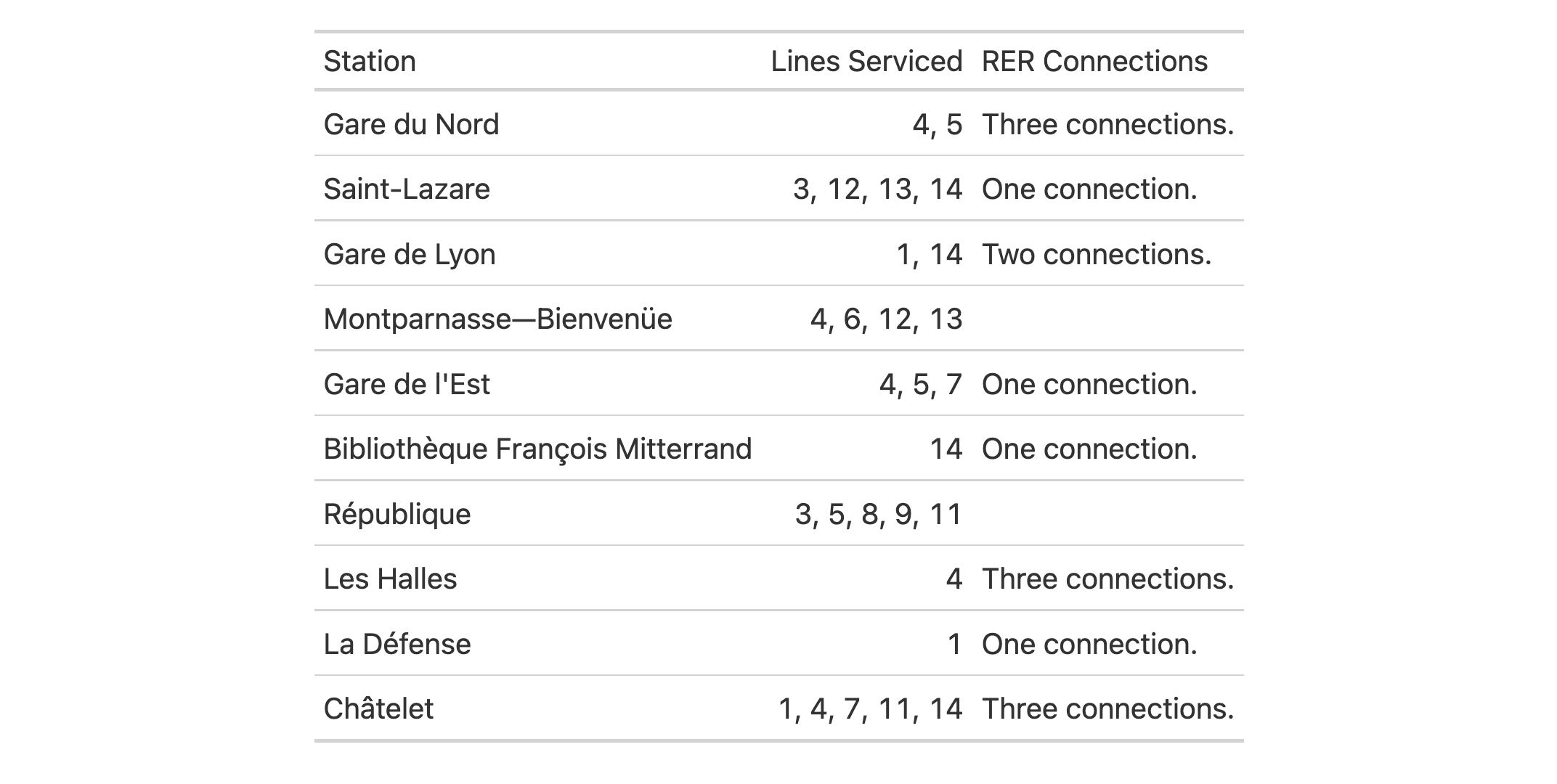text_case_when: Perform whole text replacements using a...
In rstudio/gt: Easily Create Presentation-Ready Display Tables
View source: R/text_transform.R
text_case_when R Documentation
Perform whole text replacements using a 'case-when'-expression approach
Description
text_case_when() provides a useful interface for a case-by-case approach to
replacing entire table cells. First off, you have to make sure you're
targeting the appropriate cells with the .locations argument. Following
that, you supply a sequence of two-sided formulas matching of the general
form: <logical_stmt> ~ <new_text>. In the left hand side (LHS) there should
be a predicate statement that evaluates to a logical vector of length one
(i.e., either TRUE or FALSE). To refer to the values undergoing
transformation, you need to use the x variable.
Usage
text_case_when(.data, ..., .default = NULL, .locations = cells_body())
Arguments
.data
The gt table data object
obj:<gt_tbl> // required
This is the gt table object that is commonly created through use of the
gt() function.
...
Matching expressions
<multiple expressions> // required
A sequence of two-sided formulas. The left hand side (LHS)
determines which values match this case. The right hand side (RHS) provides
the replacement text (it must resolve to a value of the character class).
The LHS inputs must evaluate to logical vectors.
.default
Default replacement text
scalar<character> // default: NULL (optional)
The replacement text to use when cell values aren't matched by any of the
LHS inputs. If NULL, the default, no replacement text will be used.
.locations
Locations to target
<locations expressions> // default: cells_body()
The cell or set of cells to be associated with the text transformation.
Only cells_column_spanners(), cells_column_labels(),
cells_row_groups(), cells_stub(), and cells_body() can
be used here. We can enclose several of these calls within a list() if we
wish to make the transformation happen at different locations.
Value
An object of class gt_tbl.
Examples
Use a portion of the metro dataset to create a gt table. We'll use
text_case_when() to supply pairs of predicate statements and replacement
text. For the connect_rer column, we will perform a count of pattern
matches with stringr::str_count() and determine which cells have 1, 2, or 3
matched patterns. For each of these cases, descriptive replacement text is
provided. Here, we use a .default value to replace the non-matched
cases with an empty string (""). Finally, we use cols_label() to modify
the labels of the three columns.
metro |>
dplyr::slice_max(passengers, n = 10) |>
dplyr::select(name, lines, connect_rer) |>
gt() |>
text_case_when(
stringr::str_count(x, pattern = "[ABCDE]") == 1 ~ "One connection.",
stringr::str_count(x, pattern = "[ABCDE]") == 2 ~ "Two connections.",
stringr::str_count(x, pattern = "[ABCDE]") == 3 ~ "Three connections.",
.default = "", .locations = cells_body(columns = connect_rer)
) |>
cols_label(
name = "Station",
lines = "Lines Serviced",
connect_rer = "RER Connections"
)

Function ID
4-2
Function Introduced
v0.9.0 (Mar 31, 2023)
See Also
Other text transforming functions:
text_case_match(),
text_replace(),
text_transform()
rstudio/gt documentation built on March 29, 2025, 4:02 a.m.
View source: R/text_transform.R
| text_case_when | R Documentation |
Perform whole text replacements using a 'case-when'-expression approach
Description
text_case_when() provides a useful interface for a case-by-case approach to
replacing entire table cells. First off, you have to make sure you're
targeting the appropriate cells with the .locations argument. Following
that, you supply a sequence of two-sided formulas matching of the general
form: <logical_stmt> ~ <new_text>. In the left hand side (LHS) there should
be a predicate statement that evaluates to a logical vector of length one
(i.e., either TRUE or FALSE). To refer to the values undergoing
transformation, you need to use the x variable.
Usage
text_case_when(.data, ..., .default = NULL, .locations = cells_body())
Arguments
.data |
The gt table data object
This is the gt table object that is commonly created through use of the
|
... |
Matching expressions
A sequence of two-sided formulas. The left hand side (LHS)
determines which values match this case. The right hand side (RHS) provides
the replacement text (it must resolve to a value of the |
.default |
Default replacement text
The replacement text to use when cell values aren't matched by any of the
LHS inputs. If |
.locations |
Locations to target
The cell or set of cells to be associated with the text transformation.
Only |
Value
An object of class gt_tbl.
Examples
Use a portion of the metro dataset to create a gt table. We'll use
text_case_when() to supply pairs of predicate statements and replacement
text. For the connect_rer column, we will perform a count of pattern
matches with stringr::str_count() and determine which cells have 1, 2, or 3
matched patterns. For each of these cases, descriptive replacement text is
provided. Here, we use a .default value to replace the non-matched
cases with an empty string (""). Finally, we use cols_label() to modify
the labels of the three columns.
metro |>
dplyr::slice_max(passengers, n = 10) |>
dplyr::select(name, lines, connect_rer) |>
gt() |>
text_case_when(
stringr::str_count(x, pattern = "[ABCDE]") == 1 ~ "One connection.",
stringr::str_count(x, pattern = "[ABCDE]") == 2 ~ "Two connections.",
stringr::str_count(x, pattern = "[ABCDE]") == 3 ~ "Three connections.",
.default = "", .locations = cells_body(columns = connect_rer)
) |>
cols_label(
name = "Station",
lines = "Lines Serviced",
connect_rer = "RER Connections"
)

Function ID
4-2
Function Introduced
v0.9.0 (Mar 31, 2023)
See Also
Other text transforming functions:
text_case_match(),
text_replace(),
text_transform()
Add the following code to your website.
For more information on customizing the embed code, read Embedding Snippets.
